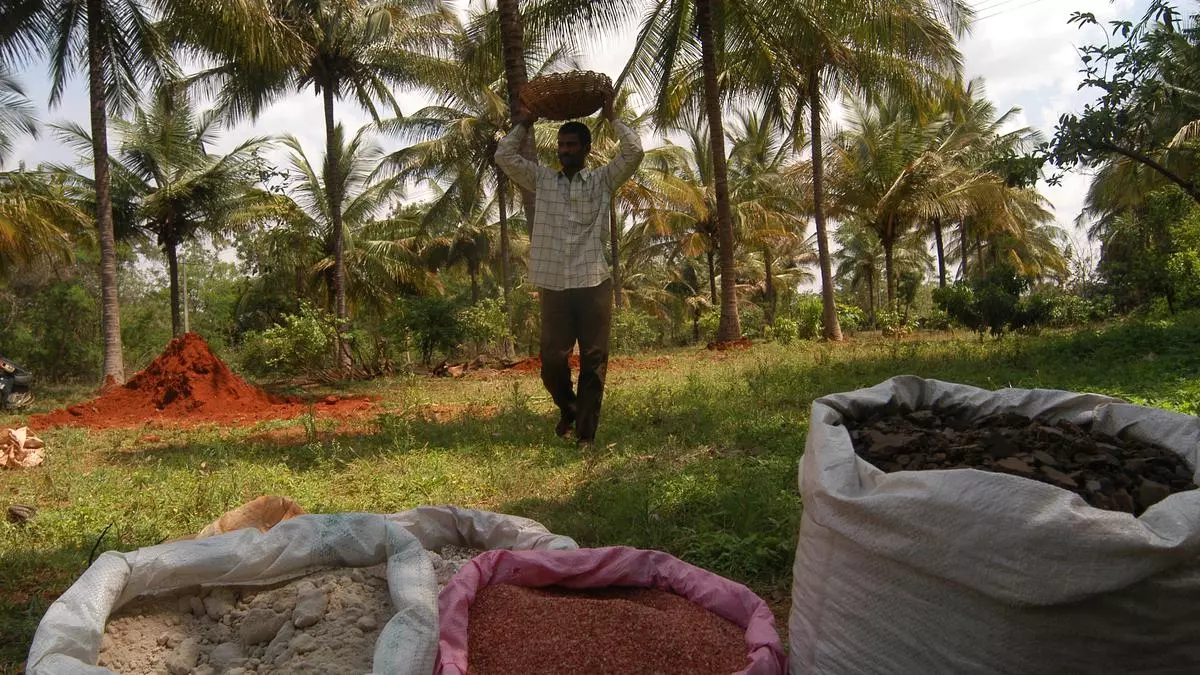Integrated farming: A game changer in augmenting farmers income of Karnataka
Karnataka is witnessing a transformative shift in its farming landscape. With the implementation of the “Karnataka Raitha Samruddhi Yojane” and the establishment of the Agriculture Development Authority, the State government is paving the way for integrated farming practices. This article delves into the significance of integrated farming in augmenting farmers’ income in Karnataka, highlighting key initiatives and their potential impact on the State’s agriculture sector.
Agriculture has been the backbone of Karnataka’s economy, providing livelihoods to millions of farmers across the State. However, persistent challenges such as fragmented landholdings, dwindling farm incomes, and climate uncertainties have necessitated innovative approaches to revitalise the sector.
In response, the Karnataka government has embarked on a bold journey towards promoting integrated farming as a means to enhance farmer prosperity. Integrated farming, also known as mixed farming or polyculture, involves the simultaneous cultivation of crops, rearing of livestock, and other allied activities within a single farming system. This holistic approach facilitates in optimising resource utilsation but also fosters resilience against market fluctuations and environmental stresses. This mechanism of leveraging synergies between different components of the farm ecosystem, integrated farming holds the promise of significantly augmenting farmers’ income while ensuring the sustainability of agricultural operations.
Adopting integrated farming
Integrated farming can be adopted by farmers by considering the following to enhance productivity and profitability, and for sustainable agricultural practices on the farms. Integrated farming begins with a thorough assessment of farm resources, including land, water, climate, and existing farming practices. Farmers should identify their goals and priorities, whether it be increasing income, improving soil health, or diversifying production. Farmers can start small and gradually expand for experimentation and learning, minimising risks and maximising benefits. Integrated farming encompasses a range of components that can be tailored to suit the needs and resources of individual farms.
Crop-livestock integration involves combining crop production with animal husbandry, where livestock contribute to nutrient cycling, weed control, and soil fertility. Agro-forestry integrates trees with crops and/or livestock, offering additional benefits such as shade, windbreaks, and biodiversity conservation. Aquaponics systems merge aquaculture with hydroponic crop production, utilising fish waste to fertilise plants and vice versa. Each component of integrated farming offers unique opportunities for synergy and resource optimisation. Education and training play a pivotal role in supporting farmers’ adoption of integrated farming practices.
Farmers should participate at workshops, training programs, and extension services to enhance their knowledge and skills in integrated farming techniques. Experimentation and adaptation are key as farmers implement integrated farming systems on their farms. Monitoring and evaluation enable farmers to assess the performance and impact of their integrated farming practices, identifying what works best and making necessary adjustments. Farmers should also explore market opportunities for their products through direct marketing channels like farmers’ markets, farmers producers’ companies and online platforms. Adopting to organic farming practices and promoting biodiversity enhances the sustainability of integrated farming systems, reducing reliance on chemical, synthetic inputs and fostering ecosystem resilience.
Way forward to farmers
The government’s proposal of Karnataka Raitha Samruddhi Yojane should provide financial incentives, technical assistance, and market linkages to farmers in adopting diversified and sustainable agricultural practices to enhance farm productivity and income. The Agriculture Development Authority should facilitate the effective implementation of policies related to agriculture and allied activities. The authority should coordinate and collaborate across various departments of the government streamlining efforts towards promoting integrated farming and enhancing farmer welfare in the State.
The proposed establishment of an international floriculture market in Bengaluru under a Public-Private Partnership model is poised to revolutionise the horticulture sector. The initiative of providing access to global markets and value-added services would create new opportunities for floriculture farmers to increase their income and also facilitate employment creation. The setting up of Kissan Malls in selected districts shall serve as one-stop destinations for farmers, offering technical guidance, market connectivity, farming implements, and agro-products. These integrated platforms not only facilitate knowledge sharing and capacity building but also strengthen market linkages, thereby empowering farmers to optimise their income potential.
The establishment of food parks at airports across the State would enhance the value chain infrastructure for agricultural produce. Utilising air connectivity and modern logistics facilities, these parks shall facilitate the export of high-value agricultural products, and processed foods, opening up new avenues for farmers to tap into global markets and command premium prices for their produce.
In addition, the government’s proposal for the construction of new buildings for 200 veterinary institutions addresses the critical need to upgrade infrastructure and services in the animal husbandry sector. Easy access to veterinary care in the State and extension services to the farming community would improve livestock productivity and contribute to farmers’ income augmentation and also support integrated farming in the true sense. These concerted efforts of the Karnataka government towards promoting integrated farming are poised to be a game changer for the State’s agriculture sector. Incentivising diversification, fostering innovation, and strengthening market linkages, have the potential to unlock new income streams for farmers, enhance productivity, and ensure the sustainability of agricultural livelihoods.
Holds promise
Integrated farming holds immense promise as a catalyst for transforming Karnataka’s agriculture sector. With the State’s visionary policies, strategic investments, and concerted efforts towards promoting diversification and sustainability, the government is laying the foundation for a brighter and more prosperous future for farmers. As Karnataka embarks on this journey towards integrated farming, it is poised to emerge as a pioneer in agricultural innovation and farmer empowerment, setting a benchmark for other States to follow.
The author is Professor, Indian Institute of Plantation Management. The views expressed by the author are personal and do not necessarily reflect the views or opinions of the institution.
